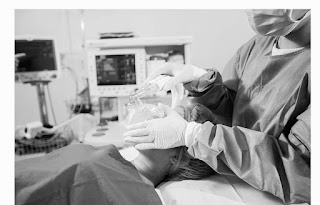Surgery and Smoking Cessation.
STATEMENT ON SMOKING CESSATION
Committee of Origin: Task Force on Smoking Cessation (Approved by the ASA House of Delegates on October 22, 2008, and reaffirmed on October 16, 2013)
Approximately one of every five American adults smoke cigarettes and up to half of these individuals will die prematurely because of their use of tobacco. The majority of these smokers want to quit. Each year, millions of cigarette smokers require surgery and anesthesia in the United States. Smoking has a direct impact on postoperative outcomes such as wound healing, and abstinence from smoking may improve these outcomes. In addition, surgery may represent a teachable moment for promotion of long-term smoking cessation: i.e., smokers may be more receptive to messages urging them to quit. For these reasons, the scheduling of surgery represents an excellent opportunity for cigarette smokers to quit smoking. Patients should abstain from smoking for as long as possible both before and after surgery, and they should obtain help in doing so. Patients can receive help in a variety of ways, including telephone quitlines (1-800- QUITNOW), which are of proven efficacy and are now readily available to all Americans.



